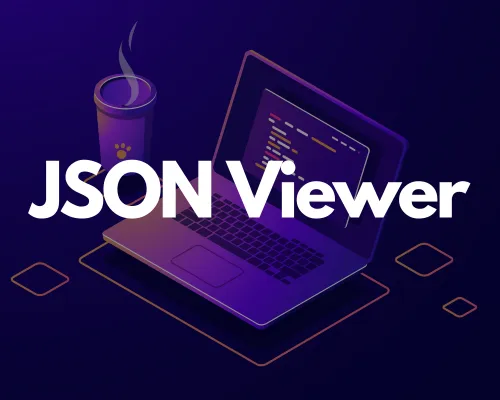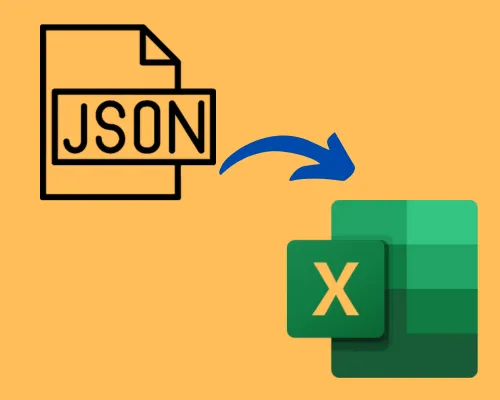All JSON Tools

JSON Formatter
Online JSON Formatter & Viewer Fast, Free & Unlimited

JSON Minifier
Online JSON Minifier & Viewer Fast, Free & Unlimited

JSON to CSV Converter
JSON to CSV Converter Fast, Free & Unlimited

JSON Viewer
Online JSON Viewer Fast, Free & Unlimited

JSON to Excel
Online JSON to Excel Converter Fast, Free & Unlimited
Online Web Tools for Developers and Data Analysts Free
JSON (JavaScript Object Notation) is the web development, data interchange standard, no-contest choice. It's light, human-readable, and simple for machines to create and understand, so it's a common format for APIs, configurations, and data storage. But as projects grow and data becomes more complex, working with JSON can be painful. That is where CodingIndiaLab's JSON Tools fit in, a set of free in-browser utilities allowing developers and analysts to easily validate, format, convert, and visualize JSON data without writing extra code or having to install packages.
From debugging API responses, data format modifications, to just trying to make your data more readable, CodingIndiaLab's JSON Tools simplify it for you. The tools are fast, accurate, and free of cost, thus being helpful to developers, engineers, and students alike, as well as any professional working with structured data.
What is JSON, and why is it used
JSON is a key-value pair data-interchange format. It is commonly utilized in web development for the interchange of data between a client and a server. For example, when you fetch user data from a website's server or interact with third-party APIs such as Google Maps or Twitter, the output will most likely be in JSON.
Here's why JSON is so popular:
- It's light in size and fast to parse
- Easy for humans and machines to read
- Works perfectly with JavaScript and most programming languages
- Ideal for APIs, config files, and structured data
Why Use JSON Tools?
Editing or checking raw JSON data manually can be tiresome. It's simple to miss tiny syntax mistakes such as missing commas or braces, which can ruin an entire application. CodingIndiaLab's JSON Tools assist by doing the boring bits automatically, providing visual simplicity, and making your data accurate.
Here's why users use these tools:
Saves Time: No extra code or scripts need to be written just to test or format JSON.
Beginner-Friendly: You can easily format and validate JSON even if you're a beginner.
Cross-Platform: Access it from any browser, on any OS.
Secure & Private: All is done within the browser — no data is stored or transmitted.
Free and Instant: No login or setup. Paste your JSON and start working.
Top JSON Tools on CodingIndiaLab
Let's walk through the core JSON tools of CodingIndiaLab and observe how each one can be helpful in your development or data work.
JSON Formatter
JSON Formatter is probably the most widely used tool. It takes raw, minified, or ugly JSON and makes it beautiful, properly indented, and color-coded. It's easier to read, understand what's happening, and debug, especially when dealing with nested structures or large payloads.
JSON Viewer
The JSON Viewer displays a tree-like graphical view of your data. Objects and arrays can be collapsed or expanded, helping you browse through deep JSON structures more naturally than inspecting raw text. It is particularly useful for viewing API responses or configuration files.
JSON to CSV Converter
Need to parse JSON data within a spreadsheet? The JSON to CSV Converter lets you convert structured JSON arrays to comma-separated values that can be imported into Google Sheets or Excel. It's a lifesaver for data analysts who work with API data or logs.
JSON Minifier
The JSON Minifier removes all whitespace, line breaks, and indentation from your JSON code, producing a compact version ideal for production environments. Minified JSON loads faster and uses less bandwidth — very useful in web development.
JSON to XML Converter
When converting between platforms or legacy systems that are XML-friendly, the JSON to XML Converter simplifies the process of converting your data. The tool converts JSON objects into formatted XML for integration with ease.
Who Can Utilize JSON Tools?
JSON Tools by CodingIndiaLab are ideal for a wide range of users:
- Web Developers: Structure and validate API responses, debug JavaScript applications, and optimize payloads.
- Data Analysts: Convert JSON to CSV for easier analysis in spreadsheets or BI tools.
- Backend Engineers: Debug API endpoints, data format conversion, and response validation.
- Students and Learners: Familiarize yourself with handling JSON and its structure.
- DevOps & SREs: Edit config files with ease and automate data transformation processes.